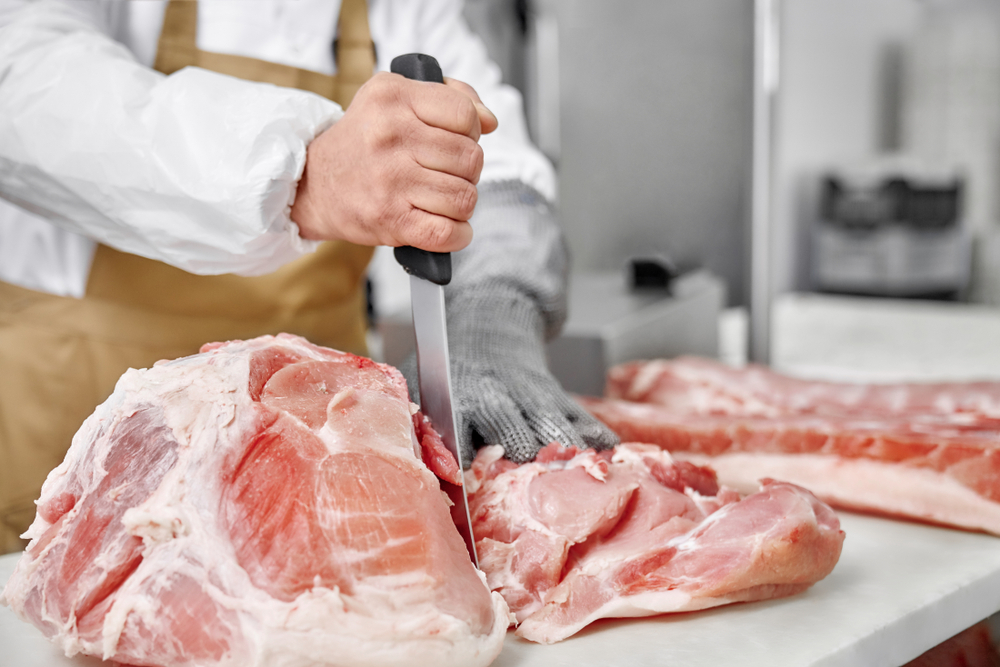Difference Between Halal and Kosher Slaughtering in USA
Difference Between Halal and Kosher Slaughtering in USA
In the United States, both Halal (Islamic) and Kosher (Jewish) slaughtering methods are practiced to meet the dietary laws of Muslim and Jewish communities. While both systems are rooted in religious traditions and prioritize ethical animal treatment, they have distinct rules, rituals, and interpretations.
This article explains the key differences between Halal and Kosher slaughtering in the USA, helping consumers, producers, and retailers better understand each process and its significance.


1. Religious Foundations
Halal:
Derived from Islamic dietary laws (Shariah), Halal slaughtering is based on the Qur’an and Hadith (sayings of the Prophet Muhammad). Only certain animals are permissible to eat (e.g., cows, sheep, poultry), and the process must be carried out by a Muslim.
Kosher:
Kosher dietary laws come from the Torah (Old Testament) and are detailed in the Talmud. Kosher slaughter, or Shechita, is performed by a trained Jewish slaughterer called a Shochet, who is well-versed in Jewish law.
Method of Slaughter
Halal Slaughtering in the USA:
The animal must be alive and healthy at the time of slaughter
A sharp knife is used to make a swift, deep incision in the neck (cutting the windpipe, jugular veins, and carotid arteries)
Tasmiyah (God’s name) must be invoked before each slaughter: “Bismillah, Allahu Akbar”
All blood must be drained from the animal
Mechanical slaughter is sometimes used (especially in poultry), but Tasmiyah must still be recited
Performed by a Muslim
Kosher Slaughtering in the USA (Shechita):
-
The animal must be healthy and without physical defects
-
A trained Shochet performs a precise, single stroke with a very sharp knife called a chalaf
-
No blessings are said during the cut, but a blessing is said before beginning the session
-
Blood must be drained, and additional salting and soaking are done to remove residual blood
-
Strict inspection follows: if the animal has internal defects, the meat is not kosher
-
Performed by a Jewish person trained in Shechit
Halal vs. Kosher Slaughtering in the USA
Aspect | Halal Slaughter | Kosher Slaughter (Shechita) |
| Religious Basis | Qur’an and Hadith | Torah and Talmud |
| Slaughter Performed By | Practicing Muslim | Trained Jewish Shochet |
| Blessing Requirement | “Bismillah, Allahu Akbar” on each | One blessing per session |
| Stunning | Sometimes allowed (reversible) | Not permitted |
| Blood Drainage | Required | Required with extra salting/soaking |
| Post-Slaughter Inspection | Optional | Mandatory (internal organ check) |
| Certification | Various Islamic bodies | Certified by rabbinical authorities |
What We Offer

Ingredient Verification
Thorough screening of all ingredients to ensure Halal compliance.

Shariah Compliance Certification
Certification issued only after review by our Islamic compliance board.

Facility Audit
From sourcing and formulation to packaging and distribution, everything is audited for Halal integrity.

Global Recognition
Our certificates are valid across the USA and recognized in many Halal-importing countries.
Religious Invocation and Blessings
- Halal: Each animal must be slaughtered with the name of Allah (God) recited individually.
Kosher: One blessing is said at the beginning of the session, not per animal.
Post-Slaughter Requirements
Halal: Basic blood drainage is required; no extra ritual cleaning is mandatory.
Kosher: Requires additional steps post-slaughter such as soaking, salting, and inspection (bedika) to remove all traces of blood.
Stunning Practices in the USA
Halal: Some Halal certifiers in the USA permit reversible stunning before slaughter if the animal is still alive at the time of cutting. Others require no stunning at all.
Kosher: Stunning is strictly prohibited in Kosher slaughter, as it may render the animal unfit (terefah).
Certification and Oversight in the USA
Halal: Certification is done by various Islamic organizations. There is no federal Halal regulatory body, so standards may vary between certifiers.
Kosher: Supervised by rabbis and Jewish Kashrut agencies. There are multiple well-known Kosher certification bodies such as OU, OK, KOF-K, and Star-K.
Is ANT٨S certification accepted internationally?
Yes, our Halal certification is recognized across North America and key global markets.
Understanding and Respecting Both Traditions
While Halal and Kosher slaughtering practices are different, both share common values of humane treatment, spiritual intention, and cleanliness. In a multicultural society like the USA, understanding these differences helps consumers make informed choices and supports religious freedom and ethical consumption.
Looking for Certified Halal Services in the USA?
Al Nur Truly Halal Services (ANT٨S) provides reliable, Shariah-compliant Halal certification across the United States.
Contact Us Today
401 Pine Street, Suite #1, Normal, IL 61761
info@ant8s.org
+1 309-391-5411
